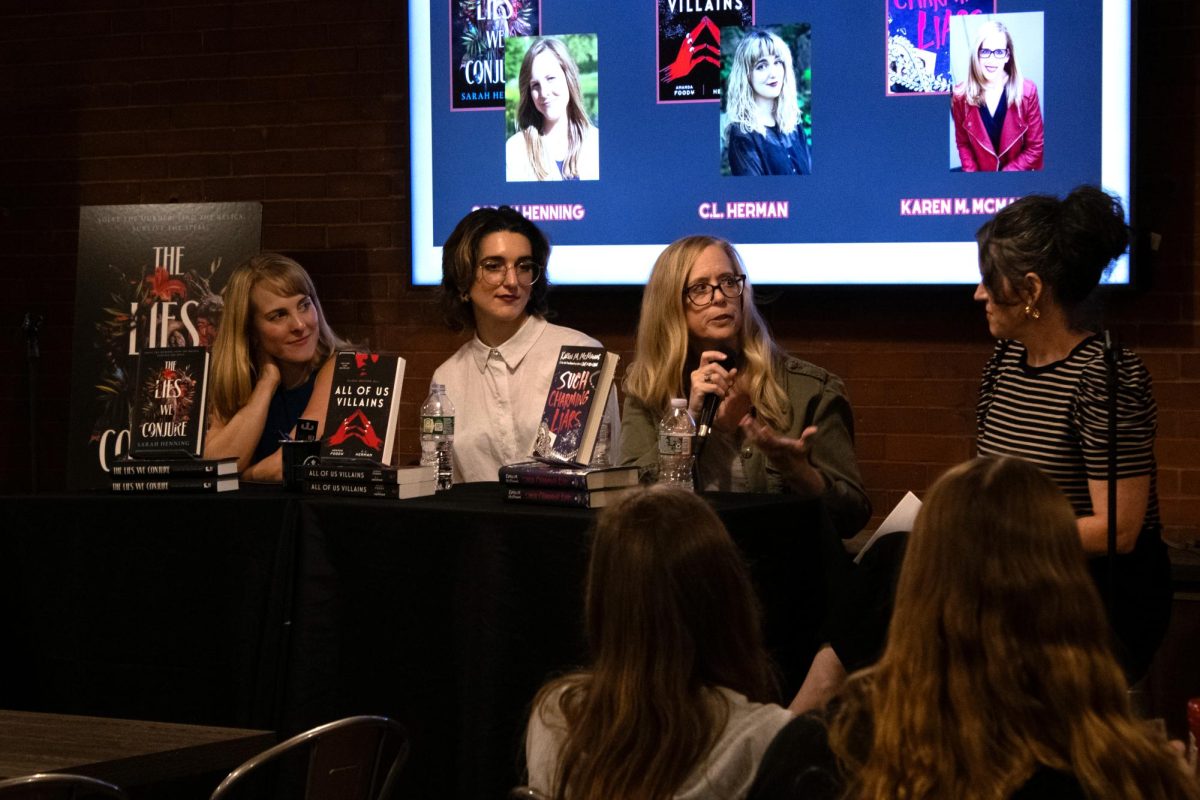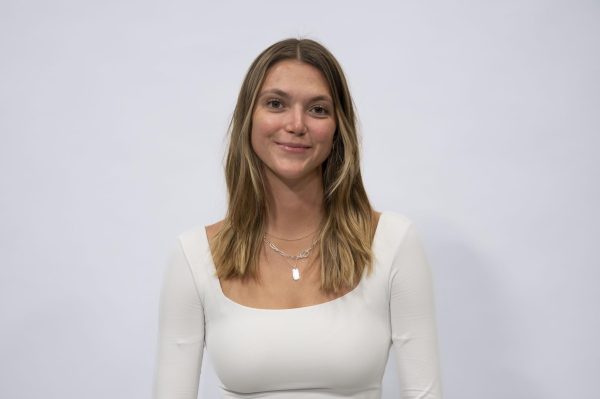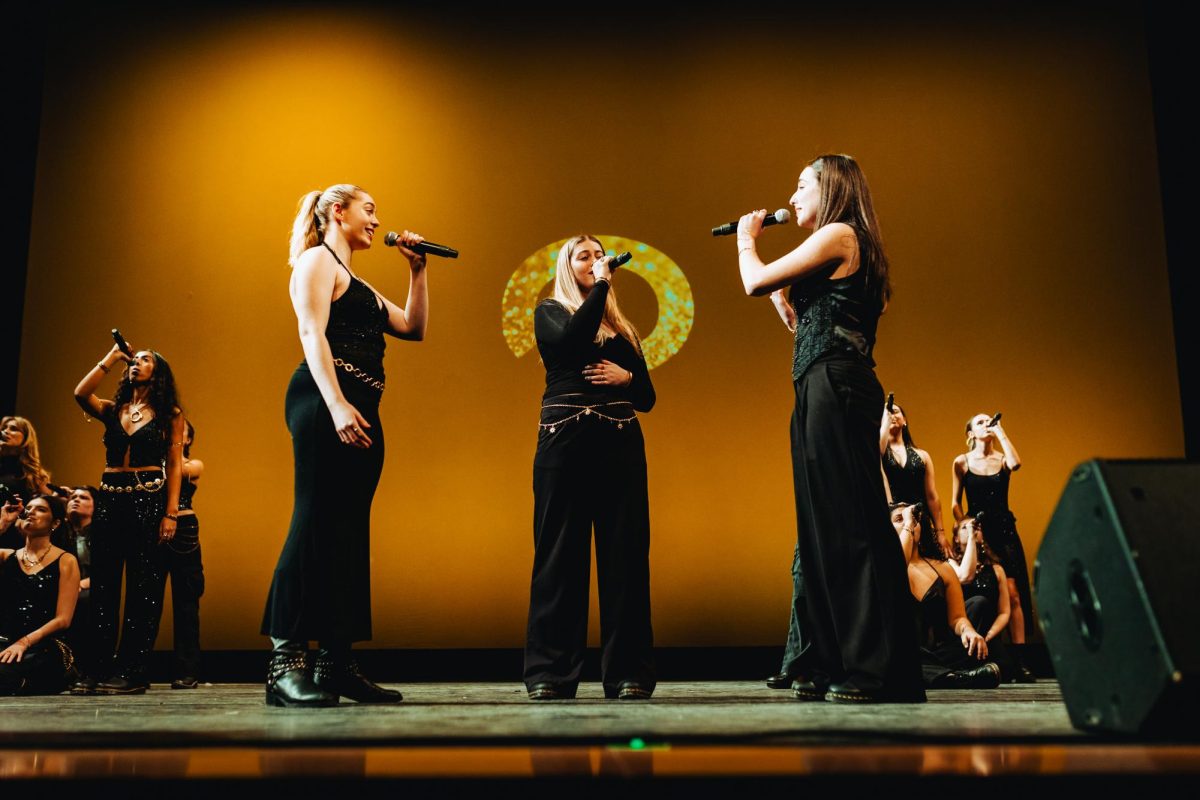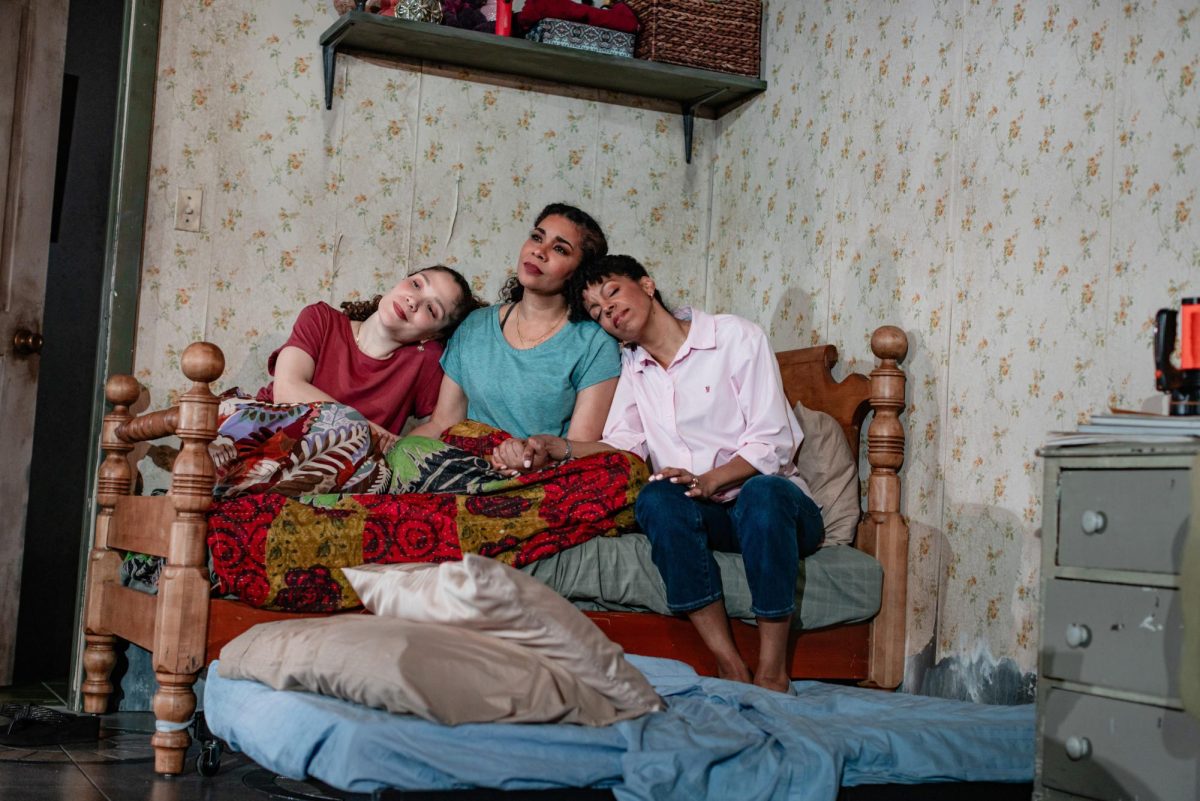Three prominent authors of young adult thriller novels met at Trident Booksellers Sept. 17 to discuss their creative processes, representation in media and experiences writing thriller content aimed at younger audiences.
In the Newbury Street bookstore’s new event space “The Stacks,” readers of all ages gathered for a Q&A session on the authors’ latest books. The conversation was moderated by Jean Stehle, a writer and librarian at Oak Hill Middle School in Newton.
All three authors — Sarah Henning, Karen M. McManus and C.L. Herman — are veterans of the YA genre. On the day of the panel, Henning was celebrating the release of her ninth book, “The Lies We Conjure,” a novel she affectionately refers to as “‘Knives Out’ with magic.” Henning said the inspiration for the book came while watching the 2019 whodunnit film.
In the novel, two sisters make a deal with an eccentric old woman and find themselves at a dinner party with 13 witches, forced to solve the murder of the hostess while hiding their human identities.
McManus, author of the #1 New York Times bestselling novel “One of Us Is Lying,” was also inspired by a movie for her latest book, “Such Charming Liars.”
“Typically I’m inspired when I’m doing something interesting and I think, ‘What if?’” McManus said. “In this case, I was watching ‘The Parent Trap’ and I thought, ‘What if both those parents were con artists?’”
In “Such Charming Liars,” former stepsiblings Kat and Liam are swept together once again as their grifter parents compete to complete one last con.
Herman’s fifth-book, “All of Us Villains,” was co-written with their longtime best friend Amanda Foody. The writing partners’ inspiration came from a simple question: “What’s a kind of book you’ve always wanted to write but have been too scared to?”
For Herman, the answer to that question was a tournament between seven wealthy families with deadly consequences.
“Come for the rich kids killing each other, stay for the rich kids killing their parents,” they said.
Each author said that they frequently strayed from their initial plot while writing, allowing the characters they had developed to direct their own stories.
“Sometimes your subconscious is pushing you in a direction that you hadn’t intended, and I think, ‘Well, if I didn’t see this coming, then the reader probably won’t either,’” Henning said. “Your first idea isn’t necessarily your best idea.”
While navigating their way through a web of deception and complex dynamics, the authors said they must also remain mindful of their younger audiences.
Lucy Ewins, a parent from Newton who came to the panel with her 13-year-old daughter and her best friend, expressed her concern over finding content that is appropriate for her child’s age group.
“I don’t read like she reads, which is about a book a week,” Ewins said. “With YA exploding as it has, it’s hard to tell what’s intended for a 13-year-old … like truly violent content that maybe you don’t want your child to yet know about.”
Each author said that they took proactive steps to ensure their content was appropriate for teenage readers — Herman, for example, includes content warnings on their website for concerned parents. However, they expressed that concerns about their books most frequently center around the identities of their characters. According to nonprofit organization Unite Against Book Bans, a record number of titles were targeted by bans in 2023, 47% of which were “titles representing the voices and lived experiences of LGBTQIA+ and BIPOC individuals.”
“No one has ever banned my book because of violence, and they’re pretty violent, but people get up in arms about queer representation,” Herman said.
As a queer author themself, Herman said that they consistently prioritize representation in their novels. McManus noted that “Such Charming Liars” was her first book to include a queer character since her hit novel “One of Us Is Lying,” a choice that she said was intentional as a non-queer writer.
“I felt like my voice was really loud, and I didn’t want to speak over [queer voices],” McManus said. “But the genre is a lot more diverse now, and we’re also in a different environment. I want my readers to know that they’re welcomed in my books.”
Henning said that it was important that her novels reflected real diversity, even in a fantastical setting.
“A lot of what fantasy is is taking real-world problems and reflecting them back through the fantasy world,” she said. “I can’t have a dinner party full of people from across the country and have them all be the same.”
Stehle expressed her appreciation for books that include this sort of representation, as she said it has helped many of her middle school students see themselves reflected in the pages of their favorite books. It was an experience that Herman added they had felt during their own childhood.
“The reason that I write YA is because of my middle school librarian,” Herman said. “I was a very weird middle schooler, which I’m very proud of now, but I had to eat lunch in the library because I was so badly bullied and my librarian recommended me [a YA thriller]. … I immediately said ‘I’m going to do this.’”
In the audience, young aspiring authors were able to hear directly from successful literary voices. Thirteen-year-old Beckett Childs, who attended the panel with her best friend, said the pair shared Herman’s experience of co-writing.
“I really liked [the panel] because we really love to read,” Childs said. “We’ve tried to write a book together … there’s so many Google Docs with random ideas we’ve come up with.”
Before audience members were welcomed to the stage to purchase signed copies of all three books, Stehle closed out the panel by expressing her gratitude for all three writers.
“It’s important that we have books like yours that are entertaining and exciting. I’m grateful for the work you all are doing because it makes our job as librarians, as booksellers and as parents easier,” Stehle said. “The world is a better place with authors like you all and books like these.”












